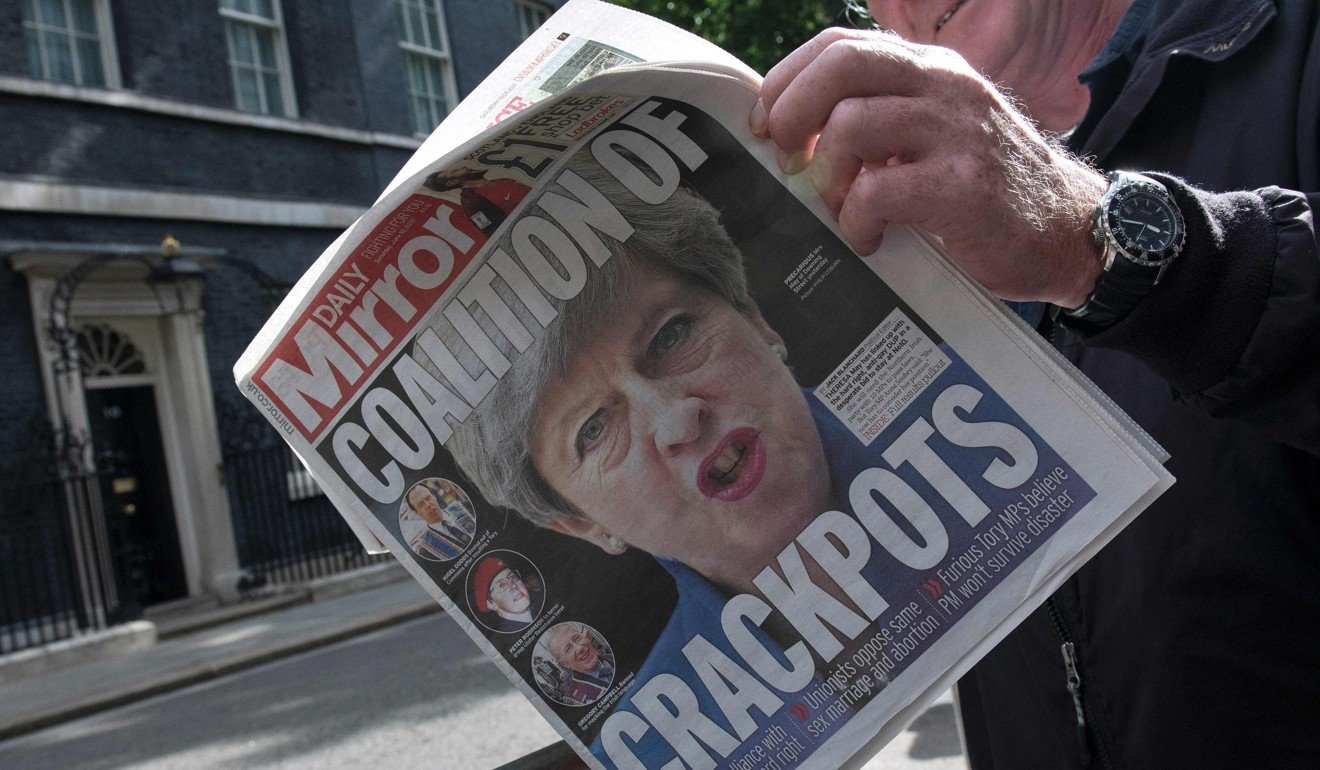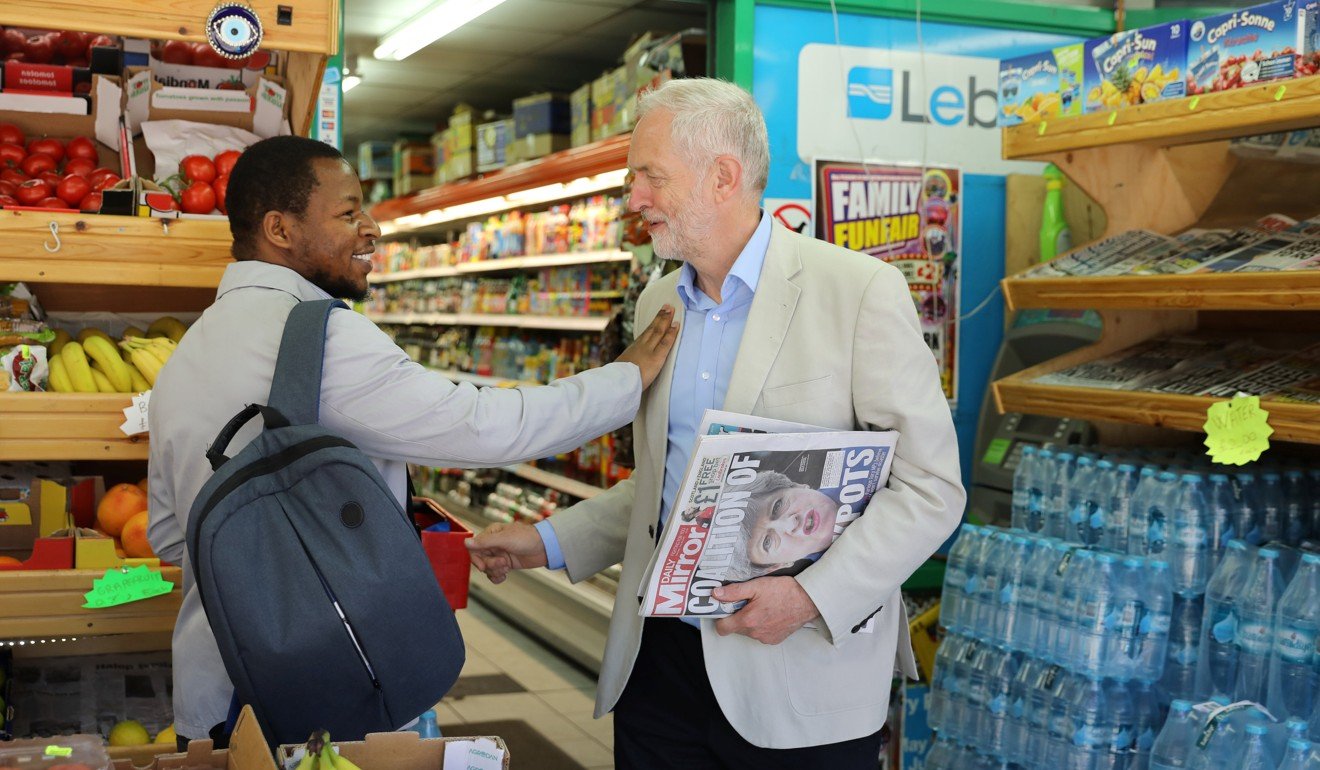
British PM Theresa May defies critics, refuses to quit, and even adopts a new slogan
British Prime Minister Theresa May on Sunday defied calls to resign and even adopted a new slogan - “getting on with the job” - after a catastrophic election performance.
Two days after results of Britain’s snap election showed May’s Conservatives had lost their majority in parliament, a visibly weakened premier denied she was feeling “shell-shocked” when quizzed by Sky News.
“What I’m feeling is that actually there is a job to be done and I think what the public want is to ensure that the government is getting on with that job,” May said in the televised interview.
Criticised for relying on campaign slogans, the prime minister’s appearance from Downing Street saw her drop the “strong and stable” leadership mantra, only to replace it with talk of getting on with governing.
May sidestepped direct questioning on whether she intends to serve a full term at prime minister, following calls for her to resign in the wake of the election debacle.

Aware that the opposition Labour party of Jeremy Corbyn had made election gains by focusing heavily on national issues, while the Conservatives drew on Brexit, May listed areas such as education and housing as top priorities.
Former finance minister George Osborne, who May sacked after taking office following the Brexit vote last June, on Sunday said May was now a “dead woman walking”.
But the prime minister said she had a busy schedule ahead, with a cabinet meeting on Monday and talks with French President Emmanuel Macron the following day.
Brexit will likely be on the agenda at the Paris meeting, after May confirmed she will stick to the timetable of negotiations over Britain’s departure from the European Union due to start on June 19.
May tried to reassert her shattered authority over the weekend by announcing her new cabinet - with no moves among her top team.

In a surprise move, Michael Gove was appointed environment and agriculture minister less than a year after the prime minister sacked him as justice minister.
The leader of the Britain’s third largest party the Liberal Democrats, Tim Farron, dismissed the reshuffle as “rearranging the deckchairs as the Titanic goes down”.
May has shown little public contrition for the electoral gamble that backfired, but was forced to accept the resignations of her two closest aides -- reportedly a requirement by cabinet colleagues for allowing her to stay in office.
With the new government set to present its legislative programme to parliament on June 19, the clock is ticking on efforts to bolster the Conservatives’ position after they won just 318 of the 650 seats in the House of Commons.
May has turned to the Protestant Democratic Unionist Party (DUP) in Northern Ireland in the hope of gaining support of their 10 MPs.
DUP leader Arlene Foster said there had been “very good discussions” so far and she would travel to London to meet May on Tuesday.
Defence Secretary Michael Fallon said the government was not looking at a formal coalition but would seek assurances that the DUP would vote with May “on the big things” such as the budget, defence issues and Brexit.
He stressed he did not share their ultra-conservative views on issues such as abortion and homosexuality, which have caused disquiet among many Conservatives.
More than 600,000 people have signed a petition condemning the proposed alliance, saying it is a “disgusting, desperate attempt to stay in power”.
The deal has also caused disquiet in Dublin, prompting Irish premier Enda Kenny to warn such an alliance could upset Northern Ireland’s fragile peace.
In a phone call on Sunday, Kenny told May that forming a minority government reliant on the support of the hardline DUP could pose a “challenge” to the 1998 Good Friday peace accords.
“The taoiseach (Kenny) indicated his concern that nothing should happen to put the Good Friday Agreement at risk and the challenge that this agreement will bring,” an Irish government spokesman said.
London’s neutrality is key to the delicate balance of power in Northern Ireland, which was once plagued by violence over Britain’s control of the province.
May responded that the DUP deal “would provide stability and certainty for the UK going forward”, her office said.

.png?itok=arIb17P0)